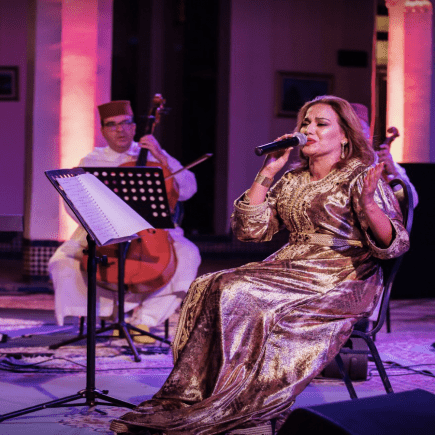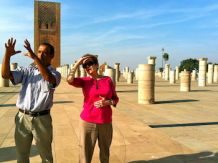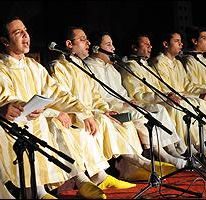
The dates for the 26th edition of the Fes Festival have been announced. From June 12-20, 2020 the Sacred Music Festival will showcase ancient musical traditions, through the blending the spirituality and religious faiths. Every year up to 100,000 people attend the Fes Festival. Its fundamental message is to promote culture and peace through music.
The 2019 theme was “Fes, At the Confluence of Cultures” and following the initiative of Morocco’s King Mohammed VI to revive the Fes Medina, the committee and chairs aimed to spread the city’s important on an international scale.
The festival’s music program was covered by a strong media presence and musicians from over thirty countries participated. Among them was the World Youth Orchestra who played alongside the Andalusian ensemble of Fes. Outstanding performances were given by Time Magazine’s great Sufi singer Sami Yousuf; Flamenco by Jose Merce and Tomatito; Carlos Nunez on the Gaïta bagpipe; and Traditional Ensemble of Oujda Spain-Morocco. Other well-known names that have graced the stage include Joan Baez, Patti Smith, Björk, Ben Harper, Paco de Lucia, Ravi Shankar, Sabah Fakhri, Kadhem Saher, Mounir Bachir, Asmaa Lamnawar, Wadi al Safi, Julia Boutros, and Sheikh Yasin al Tuhami.
The annual Fes Festival is known for bringing together writers, researchers, and philosophers. Its commitment to opening up dialogue for cultures and religions has attracted organizations like UNESCO to partner with the Festival’s Espirit de Fes Foundation. These partnerships have extended to the United States and created branch Fes Festivals. In 2006, the Spirit of Fes Inc organization was born. Their musical program circulates every two years through twenty major cities including Carnegie Hall in New York.
For centuries Fes has been considered the intellectual and artistic capital of Morocco. For centuries it has attracted scholars and religious leaders. Pope Sylvester II studied there from 999 to 1003 and went on to introduce Arabic numbers to Europe. In the XII the century, Maimonides a Jewish physician and scholar taught at the Al Quaraouiyine University.





